Marco Baldi actually played in the Bundesliga himself when he was a student, back when basketball was still a niche sport in Germany. Today he is managing director of the ALBA BERLIN basketball team. In an interview with the ALBA Group, he looks back on the club’s success story going back nearly 30 years.
“The club was basically a shoe box full of receipts” Interview with ALBA BERLIN managing director Marco Baldi
Marco Baldi, you helped establish the basketball club nearly 30 years ago. Today it is one of the leading clubs in Germany and Europe. What was your experience of those early years?
When they asked me if I wanted to head the club, I said yes straight away. I very much wanted to go back to Berlin and gave up my job in Stuttgart without much thought. What I found was a little disillusioning: The club was basically a shoe box full of receipts and an overdraft. There was no infrastructure whatsoever, no players and no sponsorship contracts. We had just three months before the season started to put a team together and get match operations more or less up and running.
And how did the team do?
To our complete surprise we made it to the German championship final. That’s how we got noticed by Dieter Hauert, who went on to become our president back then.
How did the sponsorship with ALBA come about in that situation?
How that came about is almost the stuff of legend for the club. Two years earlier, our then team doctor, Doc Schmidt, had asked ALBA founder Franz Josef Schweitzer if he could help the club out because it was struggling financially. That was the first contact. The meeting of Dieter Hauert and Franz Josef Schweitzer in 1991 was, in my mind, one of the most important moments in ALBA history. Dieter Hauert, as an established Berlin business figure, provided the necessary solid backing, and Franz Josef Schweitzer agreed to be name sponsor. That was a very astute marketing move.
How did the club develop from there?
We then had the basis to build a proper infrastructure. Everything had to be put in place: the main office, ticketing, youth work, you name it. On the one hand it was very strenuous, but on the other it gave us the chance to do it our own way and build our own profile.
Was it ALBA BERLIN who made basketball popular in Germany?
Certainly we had a big hand in that, because no other club has done so much to shape the Basketball Bundesliga (BBL) on and off court in the last two decades. We have made some bold decisions, fought for higher standards, and also developed many, many national players. Basketball has now overtaken professional handball in terms of total budget and spectator numbers, and we compete with ice hockey for second place after football. BBL now also leads Europe as regards sporting level, finances and infrastructure.
Does a club still have enough freedom to do its own thing with a big sponsor like the ALBA Group?
What is special about our partnership is that we see ourselves as a unit – and since 2006 we have been a unit in legal terms as well. I know of no other link-up in professional sports that is characterised by such a high level of trust and continuity. It was always important to Axel Schweitzer that the club should be able to stand on its own two feet. The ALBA Group accounts for between 10 and a maximum of 25 percent of our budget. But the decisive thing is that we mutually support each other at all levels and that both sides benefit from the partnership. Both sides have a strong interest in the other doing well, and we act accordingly.
What is the future for your club?
We have picked three priorities. The first is sporting excellence. We can’t always win, but we always want to play at the top of the league. Our second priority: We want to further strengthen ALBA BERLIN’s roots in the community – notably through our youth program, which is unique in Germany. And, thirdly, we want to further boost our international presence. The positive effect of ALBA BERLIN’s global appeal was plain to see when we were able to present our first main and jersey sponsor from China, the ZhongDe Metal Group, in 2014. Another goal is also to continue developing financially. In that respect, of course, we must aways end up breaking even.

